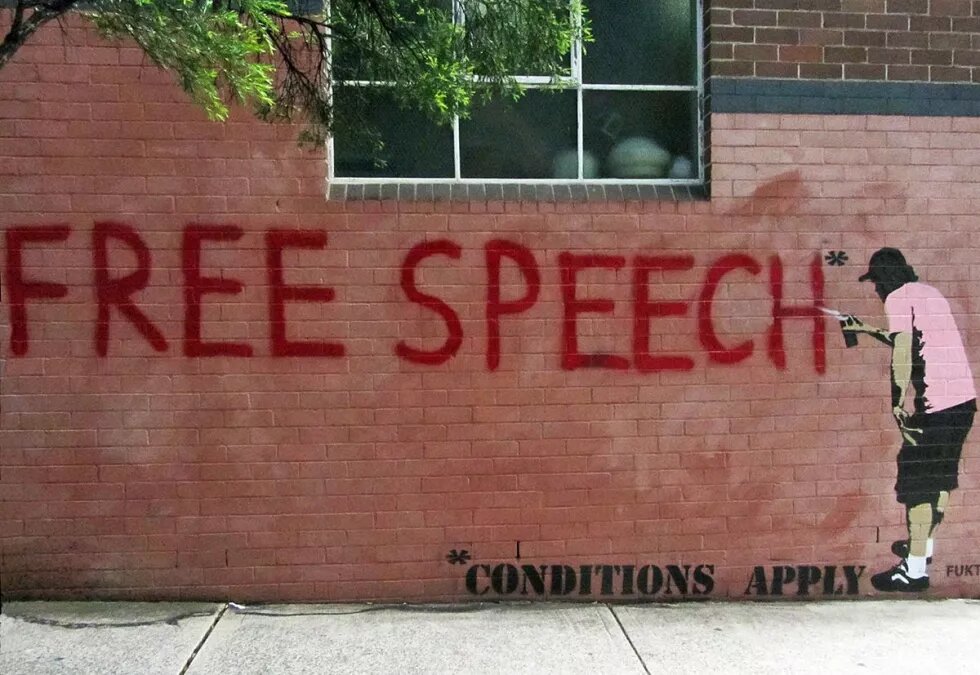CSOs are service delivery organisations, as well as advocates for people’s rights and needs. This article examines the shrinking and closing space tendency of CSOs and gives recommendations to EU institutions on how to support them.

Restricting the functioning of civil society organisations (CSOs) is a global phenomenon. In recent years, more than 63 countries have passed restrictive laws, shrinking civil society space and increasing the criminalization of and discrimination against NGOs worldwide. CIVICUS highlighted that at least 96 countries violated civic space to a significant degree in 2014 [1]. Sub-Saharan Africa and the Middle East and North Africa are the most affected regions. The restrictions are not limited to funding, but often impact the operational functioning of NGOs [2]. The tendency to control civic space is not limited to authoritarian or semi-authoritarian states but can be identified in democracies as well. It is often argued that larger countries such as Russia function as prototypes for smaller countries taking similar measures against civic space, such as Cambodia [3].
CSOs play an essential role in society. They are service delivery organisations, as well as advocates for people’s rights and needs. CSOs represent citizens and give them a stronger voice. They are not only watchdog organisations, but equal partners in policy-making and shaking. Strong partnerships between political decision-makers and CSOs, transparent and accountable democratic political parties together with active political oppositions, manifest what pluralistic democratic societies are about: the fight for arguments and political solutions to pertinent challenges to society.
Active citizenship is at the heart of any democratic society. This may be in an organised form through CSO engagement or volunteering for political parties, or through informal, often spontaneous protests, which are also a legitimate way to express opinions and dissatisfaction. Governments need to understand that this is one of many ways to bargain over political solutions. In creating and maintaining an enabling environment for CSOs, the functioning of the political system of the country in question determines whether the administrative, legal, financial and political conditions are given for CSOs, or not. At the end of the day, it is a state’s responsibility to provide the enabling framework conditions including sufficient financial means for civil society to act. The international donor community cannot, and should never, replace national financial sources and policies. However, they can advocate for enhancing the conditions and policy frameworks, and provide complementary funding to organisations in need. Unfortunately, given the current pace of restrictive measures against CSOs – across both authoritarian and democratic states - the financial and political support of external donors is often the only way of keeping CSOs alive and protecting those who need protection.
Consequently, supporting CSOs cannot be done without supporting the political society and system in the country and thus political actors, such as political parties [4], parliaments and national administrations at local, regional and national level.
Governments are only credible partners as long as they represent their countries` interests. Restricting the political space of CSOs, including freedom of speech, assembly and association, and thus eliminating the voices of people, brings into question the legitimacy of a government and should lead to a diplomatic consequence. A good example of asking a government to take action is the current petition 18/7908 of MdBs of Bündnis 90/Die Grünen of the German Bundestag on “CSO engagement need room – stop Anti-NGO law, strengthen Human Rights defenders” [5]. Intergovernmental organisations, such as the European Union Institutions, or the United Nations bodies, provide platforms to address these issues and identify and implement common solutions.
General recommendations to the European Institutions:
• The European Union should reinforce the support to CSO in all countries where the shrinking and closing space around civil society takes place, and should on a political level more actively continue to urge governments to eliminate all laws that violate human rights, including the rights of association, assembly and expression.
• The European Union, and in particular the European Commission’s Directorate-General for International Cooperation and Development (DG DEVCO), not only has to support civil society organisations (CSOs) by providing financial aid, but it also needs to transform its role from a donor towards being an important and active political actor standing for and promoting the common values of the EU in a non-partisan manner.
• Take joint action on the implementation of the EU Action Plan on Human Rights and Democracy support 2015 – 2019 adopted by the European Council on 20th July 2015. Translate into action the envisaged commitments on monitoring and assessing the legal and financial environment of CSOs, and in particular the commitments on taking steps to counter such threats; make pro-actively use of its diplomatic public and non-public intervention possibilities as set out in the Action Plan and further strengthen the democracy support component within the current and future Action Plan [6].
• The EEAS, the European Commission’s Directorate-General for International Cooperation and Development (DG DEVCO) and the European Parliament should actively raise the restrictive situation of CSOs in bilateral and multilateral human rights meetings, dialogues and fora. However, as institutions it should not be restricted to addressing issues in human rights dialogues only, but address it in all policy areas of EU external relations, including in EU trade policy dialogues.
• CSOs are best empowered in a democratic pluralistic society. Acknowledge and support that trust-building and dialogue between political actors and CSOs through various channels and by including various stakeholders at different levels are essential in any donor approach to development cooperation and democracy support [7]. Institutions should not mainly focus on building-up technical capacities of parliaments and national administrations, but should always include political awareness raising and trainings into the support programmes.
• Acknowledge the necessity of providing guidance to governments, political parties, parliaments and administrations in beneficiary countries in developing strategies aimed at establishing the appropriate legal, administrative and political environment to enable the efficient work of CSOs.
• Public donors, in particular the European Institutions, need to speak out for human rights and democracy. They need to transfer a very clear political message based on their values and principles as stated in the Lisbon Treaty Article 21 of the European Union and by so doing fortify EU’s credibility in its external actions.
• It is necessary for donors to obtain an overall understanding of the local context and knowledge on how things work in a particular country or area and adapt the funding strategy accordingly. The EU CSO roadmaps and human rights strategies and regular consultations with stakeholders during the policy formulation and implementation process should be further used as tools for integrating various voices into policy-making. Allow for transparent processes and access to national mapping exercises. Emphasis should be put on monitoring the implementation progress of the national strategies. It is important to build on long-term partnerships with CSO’s with a future perspective.
• CSOs need to strengthen - and need to be supported in doing though - their cooperation and communication with various actors and institutions (state, private sector, grassroot organisations and other CSOs) at local, regional, national and international level and create relationships based on trust and reliability.
• Provide financial support for networking and policy-exchange events (such as the EU CSO Forum in Brussels, 17.-18. March 2016).
• The EU financial support should be adjusted to the individual cases of CSO’s and the unique environment; EU Institutions should ensure that funding is available not only for long-term support, but for emergency cases as well. Thus, we recommend to increase the overall “emergency support budget” which is flexible and to be used in a fast manner to support HRDs, and in addition increase the individual support allocation to above 10.000 €.
• Ensure long-term funding for diverse CSO actors over the normal maximum three years cycle and facilitate the continuing funding to organisations in case of positive project/programme evaluation. Enhance support in EU grant application procedures; simplify EU grant application procedures and modalities and implementation regulations within the next Multiannual Financial Framework 2021 – 2027.
• The European Parliament should be more vocal in addressing political responsibilities of human rights violations by governments either during their visits as part of the EU Parliament’s delegations to partner countries or in form of European Parliament declarations.
• EU Delegations should adopt a comprehensive public approach to its external policies, being committed to that different policy fields such as trade cannot be approached separately, and should publicly and non-publicly reconfirm the EU position on human rights and democracy during bilateral meetings and official visits.
_________________________________________________________________________
[1] Please consult http://www.civicus.org/index.php/en/media-centre-129/news-and-resources-127/2245-new-civicus-report-civil-society-rights-violated-in-96-countries
[2] Barbara Unmüßig, Civil Society Under Pressure – Shrinking – Closing – No space, Heinrich-Böll-Stiftung, 02 December 2015, Link: https://www.boell.de/en/2015/12/02/civil-society-under-pressure
[3] Ralf Fücks, Dealing with Authoritarian Regimes: Challenges for a Value-based Foreign Policy, Heinrich-Böll-Stiftung, 16 November 2015, Link: https://www.boell.de/en/2015/11/16/dealing-authoritarian-regimes-challenges-value-based-foreign-policy
[4] Within political parties, the expert working groups might serves as relevant contact points to further developing national policy strategies such as on economics, fiscal policy, social policies, etc.
[5] Please consult: http://dip21.bundestag.de/dip21/btd/18/079/1807908.pdf
[6] Rebecca Wagner, EU applauds on Human Rights but where is it’s democracy support? Heinrich-Böll-Stiftung European Union, https://eu.boell.org/en/2015/09/28/eu-applauds-human-rights-where-its-democracy-support
[7]ENoP Policy Paper „Building bridges between CSOs and party political actors in the Western Balkans: the role of political foundations“ April 2015, ENoP Policy Paper, Link: http://www.european-network-of-political-foundations.eu/docs/policy/files/download/Builing%20Bridges%20between%20CS%20and%20Party%20Political%20Actors%20in%20Western%20Balkans.pdf

